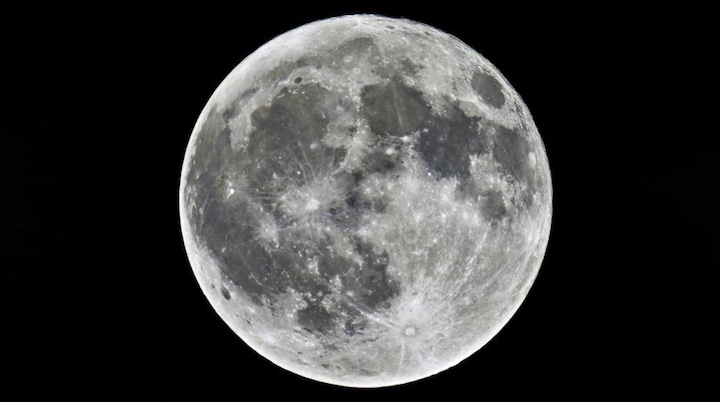On Dec. 15, 2024, Alaskans under clear skies may see the most northerly moonrise and moonset of the year — and, in fact, until the year 2043. The moonrise in Alaska is expected to occur around 12:01 a.m. on Sunday morning.
Colloquially, this is known as the Cold Moon, due to being during the darkest days of winter in the northern hemisphere.
But this moon is special. Every 18.6 years the moon comes to what is referred to as a “lunar standstill,” according to the explanation at TimeandDate.com. This is when the moon reaches the extremes of its orbit, rising and setting at its most northerly and southerly positions on the horizon.
One of Must Read Alaska’s favorite winter moon-watching websites is the sea ice camera in Utqiagvik, where you can sometimes see the moon dip and rise on the sped-up web cam replay, as shown here:
The Griffith Observatory explains that while the moon reaches its northernmost and southernmost position every 29 days, the actual limits of moonrise and moonset change much more so than the sun.
“Over an 18.6 year cycle, the greatest northern and southern positions of the moon extend beyond those of the sun,” the Observatory says. “And just as the sun lingers at its limits at each solstice, once the moon reaches these extremes, its limits don’t seem to change.”
As we approach the winter solstice — the shortest day of the year in the northern hemisphere, the sun will indeed seem to pause for a few days. But according to the Observatory, a major lunar standstill can last for a couple of years.
Learn more about this astronomical phenomena at TimeandDate.com.
If clouds are in your way in Alaska, you may be able to watch the event at the Griffith Observatory’s livestream here:
While the moon will be at its fullest on Sunday, it will still look full on Monday, Dec. 16.
This year, the winter solstice occurs six days after the full moon.
